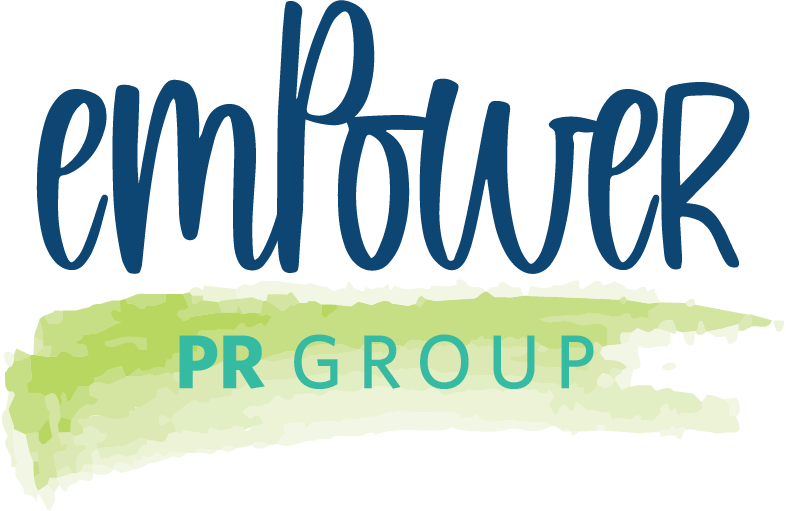A brand is more than a logo. That’s a statement branding experts stand by and business owners, thought leaders and authors seem to question. We can see a logo. We can’t touch a brand. While a logo is a visual representation of a brand, there is much, much more than meets the eye when it comes to developing a brand, especially an author brand. I had the pleasure of sitting down with Madelyn Copperwaite, a graphic design expert during Season 2 of The emPowered Author Podcast to discuss all things author brands and why they matter.
As with most things in marketing, you don’t have to do it alone. In fact, you just need to find the right people to help you get there. A brand expert can help you articulate your goals and ensure they resonate with those who need your message most. During this episode of the podcast, Madelyn and I discussed:
- How an author brand is separate from their book; it’s an extension of their identity and they are the glue to it all.
- The importance of developing a clear direction and understanding of an author’s values and goals to ensure that their brand speaks to it and reaches those it can help most.
- How a brand articulates a story that evokes emotions and shapes people’s perception of the author, their book and their business.
While brands are hard to understand because they are hard to literally hold or see, they are purposeful because they create emotional connections and drive purpose. An author’s brand story should be crafted to effectively communicate the benefits and attributes of the author’s work, and Madelyn and I explore how a good brand story can be developed at any stage!
Here are some of my favorite highlights from this episode:
- You’ve probably heard of the word brand and know that you likely need one. But where do you start? We dive into this topic quickly in the episode. (2:06)
- Many authors think their brand is their book cover. But author branding is much larger, and shouldn’t be overlooked. (12:14)
- Do you know your story? Do you know that you want to tell people? Knowing that story is the beginning of your author brand. (13:51)
- Author’s are charged with writing the story. Brand experts are in charge of overthinking the subconscious to ensure that target readers and clients feel compelled to learn more. (16:04)
- What are the problems that your target audience is suffering from or dealing with, and how are you a solution to them? Your brand needs to speak that too. (24:57)
- Does your current brand speak to who you are and who you help? It’s important to know who you are, but don’t think that that’s more important than who you help. (45:41)
An author brand is something we love helping authors bring to life. If you are puzzled where to start, reach out and let’s chat. Learn more about our author branding solutions and let’s see if we can help you.
Resources highlighted in the episode include the following.
- Before any branding discussion, you should give some thought to your overarching goals and the strategies you currently have in place to achieve them. Be sure to download our Branding Brainstorm Guide to support you.
- I had the pleasure of participating in a year-long cohort with business coach Natalie Eckdahl. She talks a lot about how just because you can do something doesn’t mean you should.
- During the episode, I shared some of my favorite books and their alignment with author brands. The first book I wrote was Color Today Pretty: An Inspirational Guide to Living a Life in Perspective. When talking branding, I’ve been told that Donald Miller’s Building a StoryBrand is a game-changing book. Michelle Wyatt’s book, Buckle Up Buttercup, offers another example shared.
- One of my favorite brands is Lush. I highlight the brand in this episode, and I’m a huge fan of their bath bombs! Try one out and tell me it’s not the best out there.
- Two of my favorite fiction authors are Mitch Albom and Jodi Picoult. Each have uniquely different author brands and offered a case study during the podcast’s discussion.
Check out the other episodes in this season of The emPowered Author Podcast.
- 2.2 Bringing Your Author Brand to Life through Fonts
- 2.3 Icons or Logotype?! That is the Author Branding Question.
- 2.4 Bringing Your Author Brand to Life through Colors
- 2.5 Using Your Brand on Your Marketing Materials
- 2.6 Connecting the Author Brand and the Book Brand
- 2.7 Bonus! Deep Dive into an Author Brand
Listen on your favorite podcast platform.
Memorable Quotes from the Episode
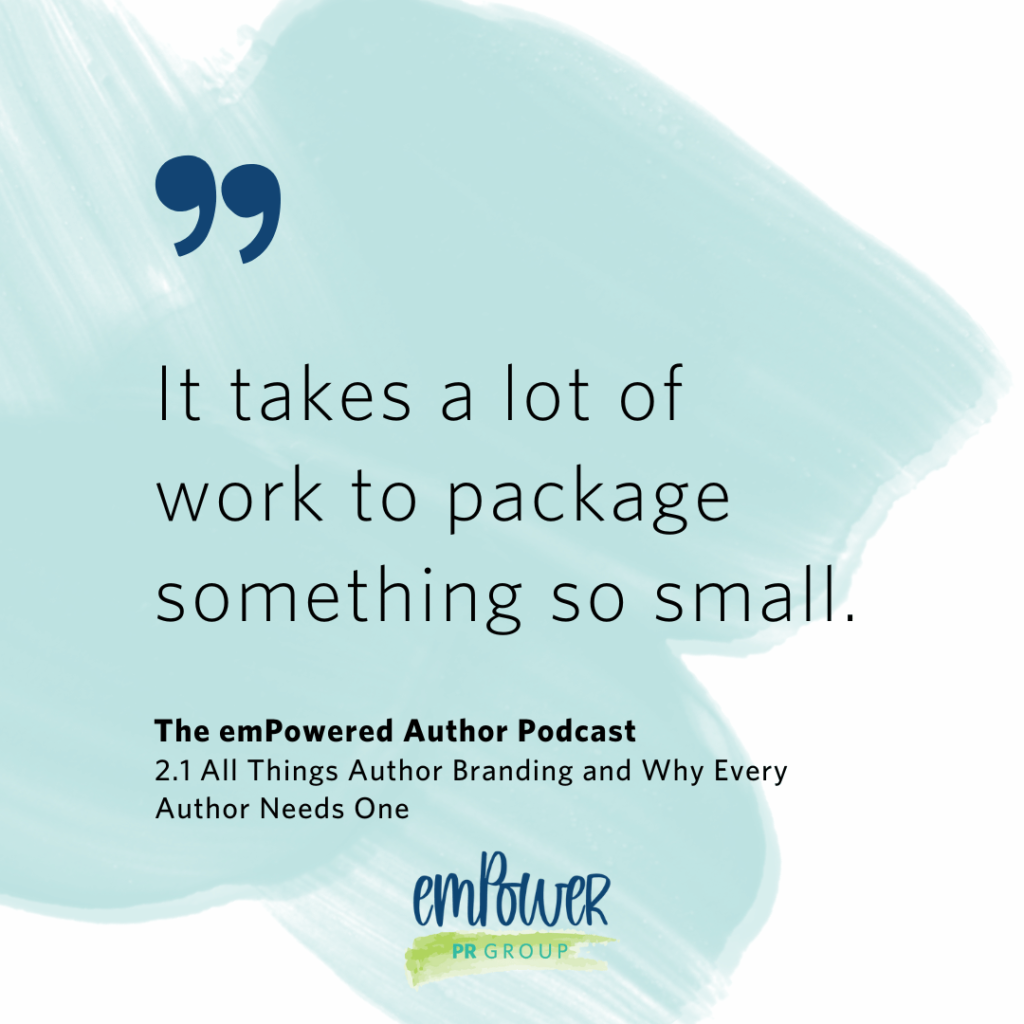
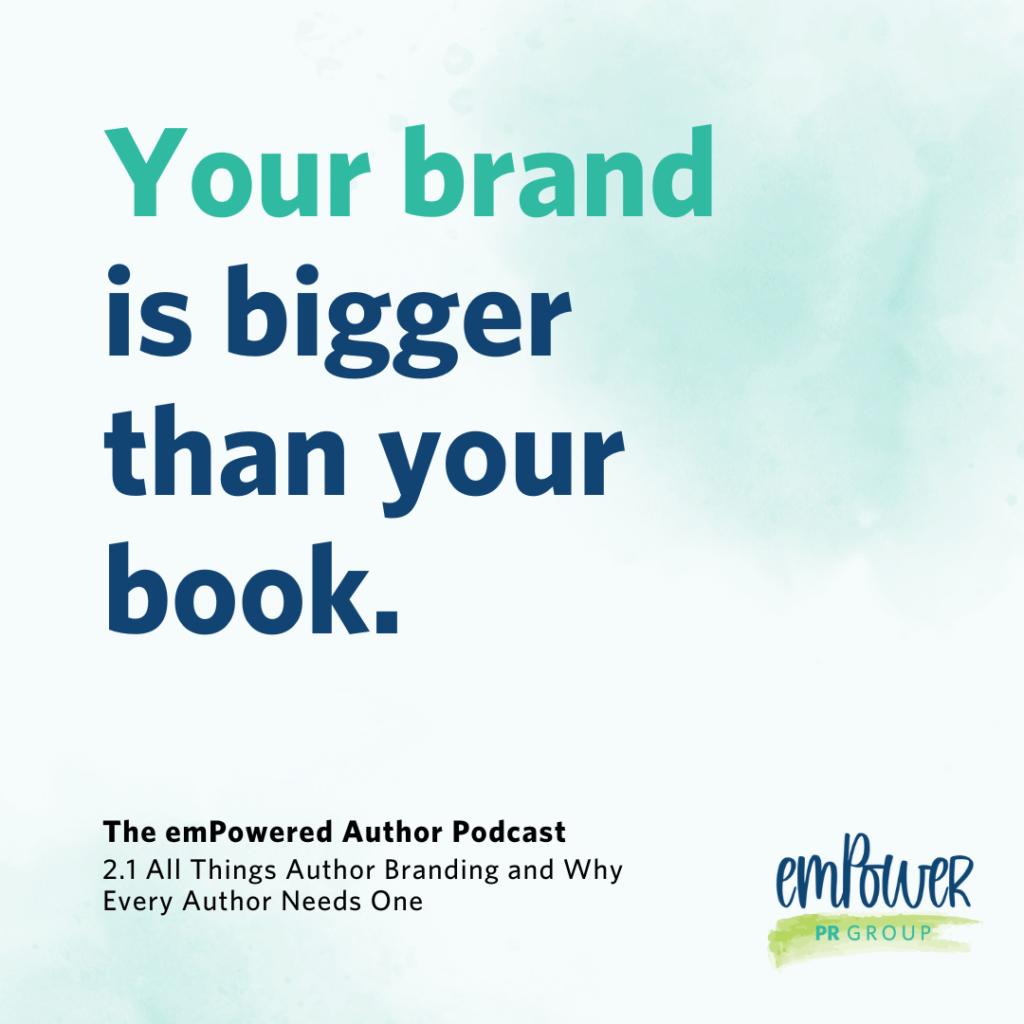
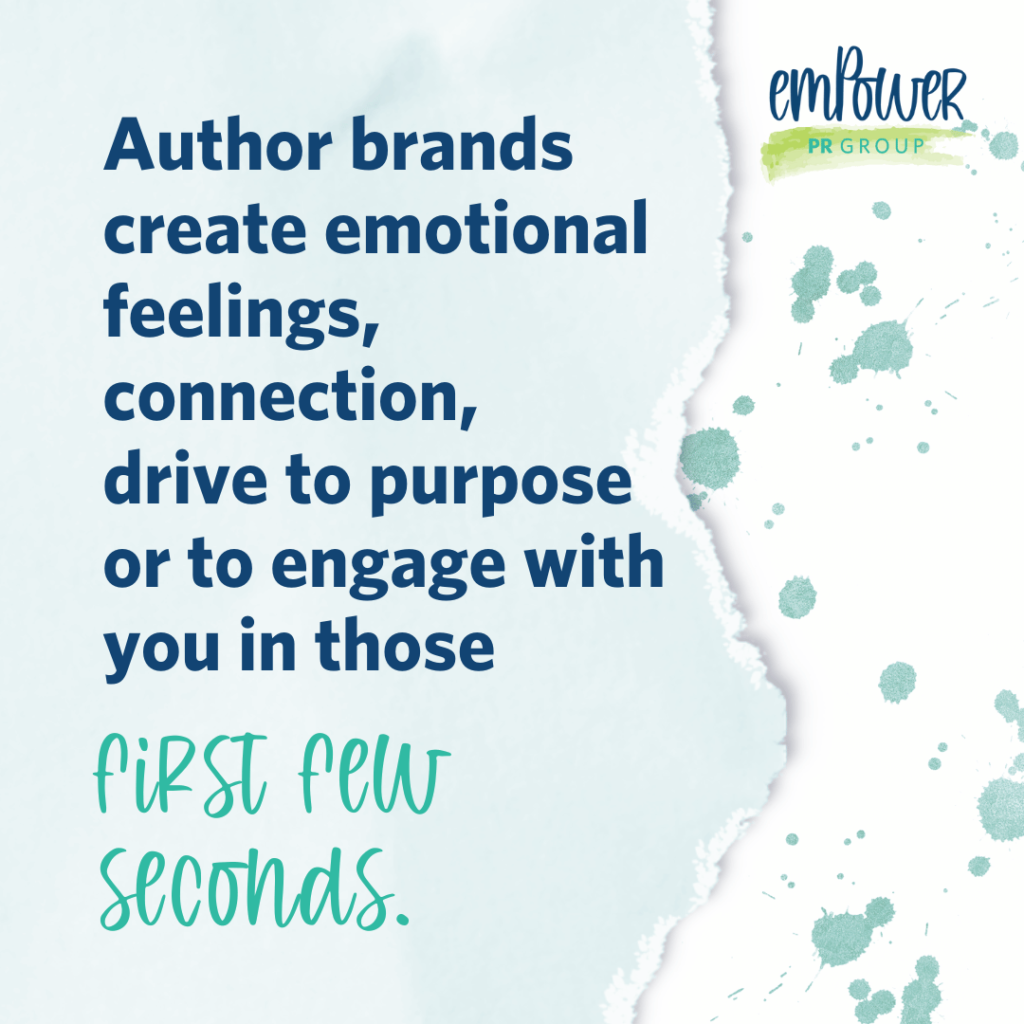
Meet the Podcast Host and Guest

Stephanie Feger
emPower PR Group
Stephanie Feger is passionate about helping authors make their author emPact. As the host of The emPowered Author Podcast, she has merged her love for reading books, writing books and marketing books to help authors be successful by sharing emPactful marketing strategies and tactics through the podcast. As an author herself and a seasoned book marketing expert, her goal is to ensure that authors are strategic and focused when it comes to book marketing.

Madelyn Copperwaite
Graphic Designer
Madelyn Copperwaite is a graphic design extraordinaire and author brand expert. Her work is a blend of creative genius and focused strategy, valuable assets in the author space. While she loves developing marketing materials, she thrives in brand development. The challenge of taking a business’ vision and emPact—something that is not easy to articulate—and creating a brand identity that captures the story in a single identity is a challenge she will take on any day.
